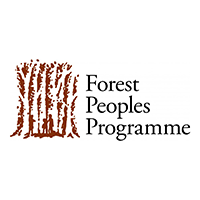Uganda
Indigenous Peoples in Uganda
Indigenous Peoples in Uganda include former hunter-gatherer communities such as the Benet and the Batwa. They also include minority groups such as the Ik, the Karamojong and Basongora pastoralists, who are not recognized specifically as Indigenous Peoples by the government.
The Benet, who number slightly over 8,500, live in the north-eastern part of Uganda. The 6,700 or so Batwa live primarily in the south-western region and were dispossessed of their ancestral land when Bwindi and Mgahinga forests were gazetted as national parks in 1991.[i] The Ik number some 13,939 and live on the edge of the Karamoja/Turkana region along the Uganda/Kenya border. The Karamojong people – whose economy is traditionally based on livestock - live in the north-east of the country (mainly drylands) and have an estimated population of 1,094,100[ii] according to a mid-2018 estimate by the Uganda Bureau of Statistics. The Basongora number around 15,000 people and are a cattle-herding community living in the lowlands adjacent to Mt. Rwenzori in Western Uganda.
All these communities have a common experience of state-induced landlessness and historical injustices caused by the creation of conservation areas in Uganda, in addition to mining interests in the case of Karamoja. They have experienced various human rights violations, including continued forced evictions and/or exclusions from ancestral lands without community consultation, consent or adequate (or any) compensation. Other violations include violence and destruction of homes and property, including livestock and denial of their means of subsistence and of their cultural and religious life through their exclusion from ancestral lands and natural resources. All these violations have resulted in their continued impoverishment, social and political exploitation and marginalization.
The 1995 Constitution offers no express protection for Indigenous Peoples but Article 32 places a mandatory duty on the State to take affirmative action in favour of groups that have been historically disadvantaged and discriminated against. This provision, which was initially designed and envisaged to deal with the historical disadvantages of children, people with disabilities and women, is the basic legal source of affirmative action in favour of Indigenous Peoples in Uganda.[iii] The Land Act of 1998 and the National Environment Statute of 1995 protect customary interests in land and traditional uses of forests. However, these laws also authorize the government to exclude human activities in any forest area by declaring it a protected area, thus nullifying the customary land rights of Indigenous Peoples.[iv]
Uganda has never ratified ILO Convention No. 169, which guarantees the rights of Indigenous and tribal peoples in independent states, and it was absent from the voting on the UN Declaration on the Rights of Indigenous Peoples (UNDRIP) in 2007.
Contact
